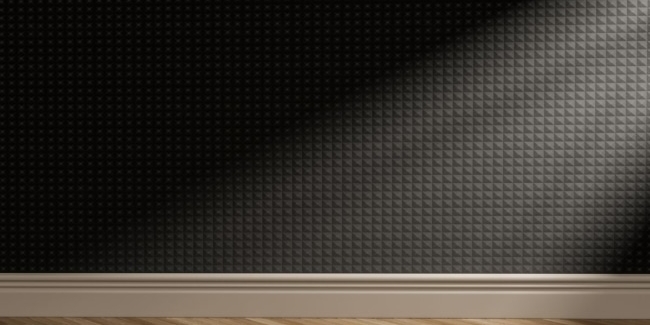Soundproofing Walls: The Heart of the Matter

Walls are often the primary point of sound transmission between rooms and from external sources. To effectively reduce this, several wall soundproofing solutions can be used:
- Mass-Loaded Vinyl (MLV): This high-density material acts as a flexible sound barrier. Installed behind drywall or flooring, it effectively blocks noise without occupying much space.
- Soundproof Drywall: Specialised drywall with sound-dampening properties is ideal for both new builds and renovations. It adds mass and density to prevent sound transfer.
- Resilient Channels: These metal strips are mounted between wall studs and drywall to “decouple” the wall surfaces, dramatically reducing sound vibration transmission.
Each of these methods strengthens your walls’ resistance to noise, offering a more private and tranquil environment.
Product Enquiry
For information on Soundproofing Walls: The Heart of the Matter please complete the following quick enquiry or call us on +44(0)1384 252555.
Product Specification & Key Characteristics
- Colour: Anthracite
- Density: <90KG/M³
- Fire Propagation Index: <12
- Operating Temperature: -30°C to 100ºC
- Thickness: 1mm – 100mm (can be laminated for greater thickness)
Full technical data can be supplied upon request,
or downloaded from our online portal.
Soundproofing Panels: A Closer Look
Acoustic panels are a crucial component in both residential and commercial soundproofing applications. Designed to absorb and control sound reflections, they help improve acoustics and reduce ambient noise.
Ideal Applications:
- Home Cinemas: Improve sound clarity and immersion by minimising echo and reverberation.
- Recording Studios: Control room acoustics to achieve clearer audio recordings and reduce external noise interference.
- Office Spaces: Reduce distractions and create quieter, more focused work environments.
With a wide range of colours, styles, and installation options, soundproofing panels also complement modern interiors.
Soundproofing Rooms: Where It All Begins
Soundproofing a room is often the first step toward eliminating everyday noise problems. It’s about more than just thick walls—it involves attention to detail and the use of the right materials.
Effective techniques include:
- Sealing Gaps & Cracks: Use acoustic sealants or weatherstripping to block noise from leaking in through door frames, windows, and skirting.
- Installing Acoustic Panels: These panels can be fitted to walls and ceilings to absorb mid-to-high-frequency noise, making them perfect for media rooms, bedrooms, and meeting spaces.
- Upgrading Doors and Windows: Solid-core doors and double-glazed windows can significantly improve a room’s soundproofing.
By focusing on the whole room envelope, you achieve better noise control and acoustic performance.
Benefits of Soundproofing
Investing in soundproofing leads to immediate and long-term improvements in both comfort and functionality:
- Enhanced Privacy: Prevent conversations or media from being heard outside your space.
- Reduced Stress: Minimise daily disruptions from road noise, footsteps, or noisy neighbours.
- Improved Focus: Ideal for home offices or shared workspaces where concentration is critical.
- Better Sleep: Create a restful environment by blocking noise at night.
- Versatile Use: Perfect for residential, industrial, retail, and leisure environments.
Advantages of Soundproofing
One of the most effective materials we offer for acoustic insulation is Polyurethane Foam—a premium option for high-performance soundproofing in many environments.
Advantage 1: Effective Noise Reduction
Polyurethane foam absorbs and dampens sound waves, making it ideal for reducing external and internal noise that can disrupt your environment. Whether it’s traffic, machinery, or loud conversations—this material keeps sound under control.
Advantage 2: Enhanced Privacy
In homes, offices, and clinics, privacy is essential. Polyurethane foam prevents noise transmission through walls, keeping conversations confidential and your space secure.
Advantage 3: Improved Sleep Quality
Noise can seriously impact sleep. Polyurethane foam helps you create a quieter bedroom by reducing the transfer of outside disturbances, allowing you to enjoy restful, uninterrupted sleep.
Please contact us using the form below or by calling us on +44(0)1384 252555.





















